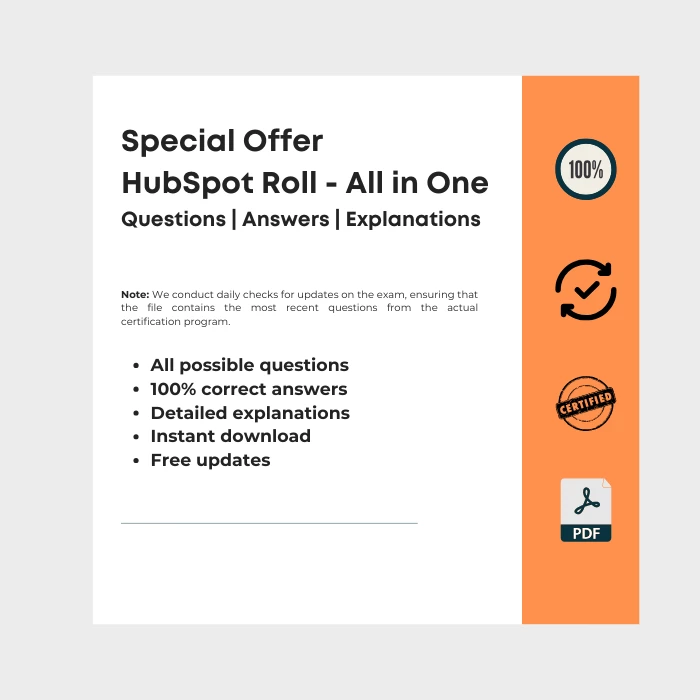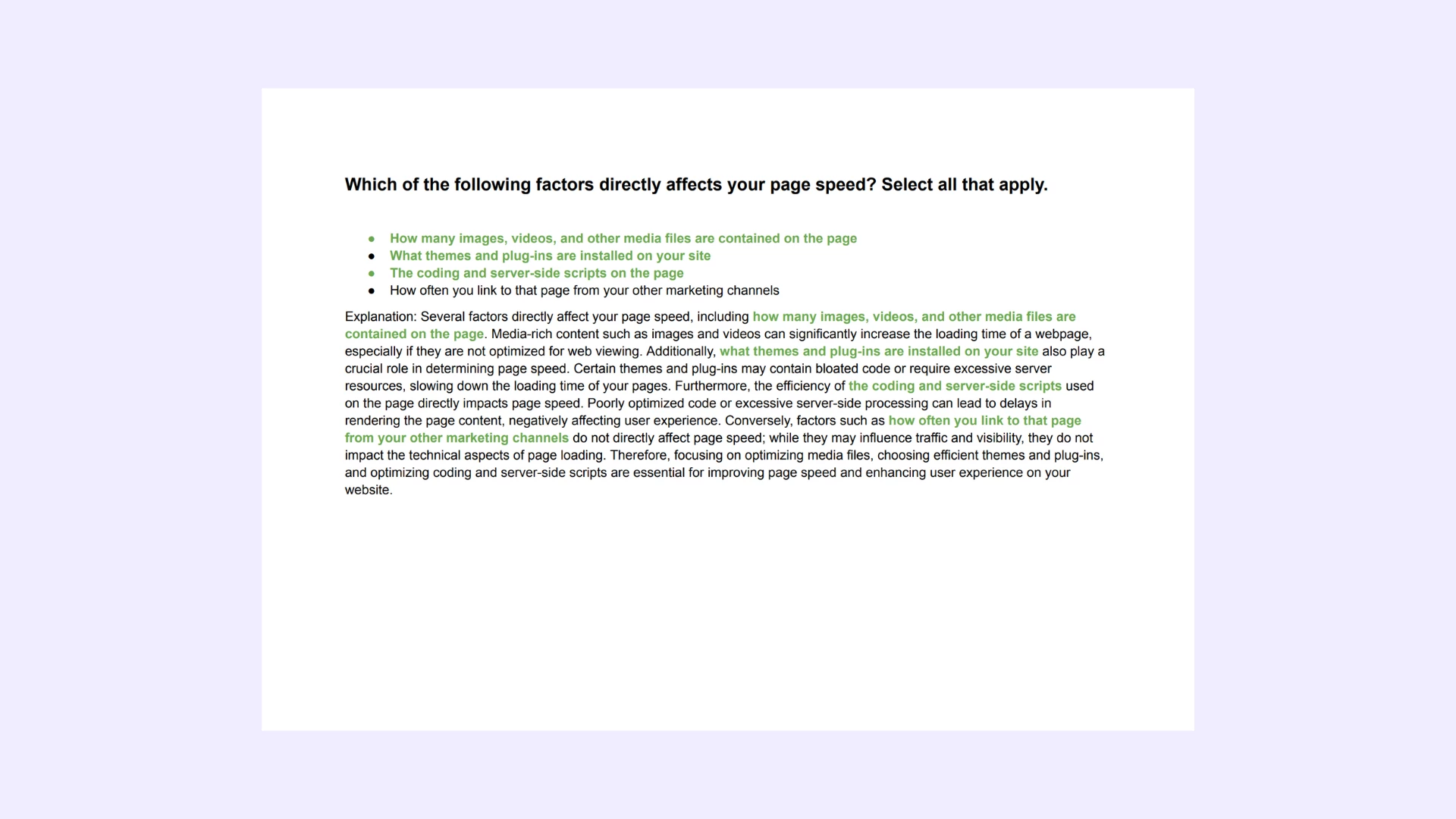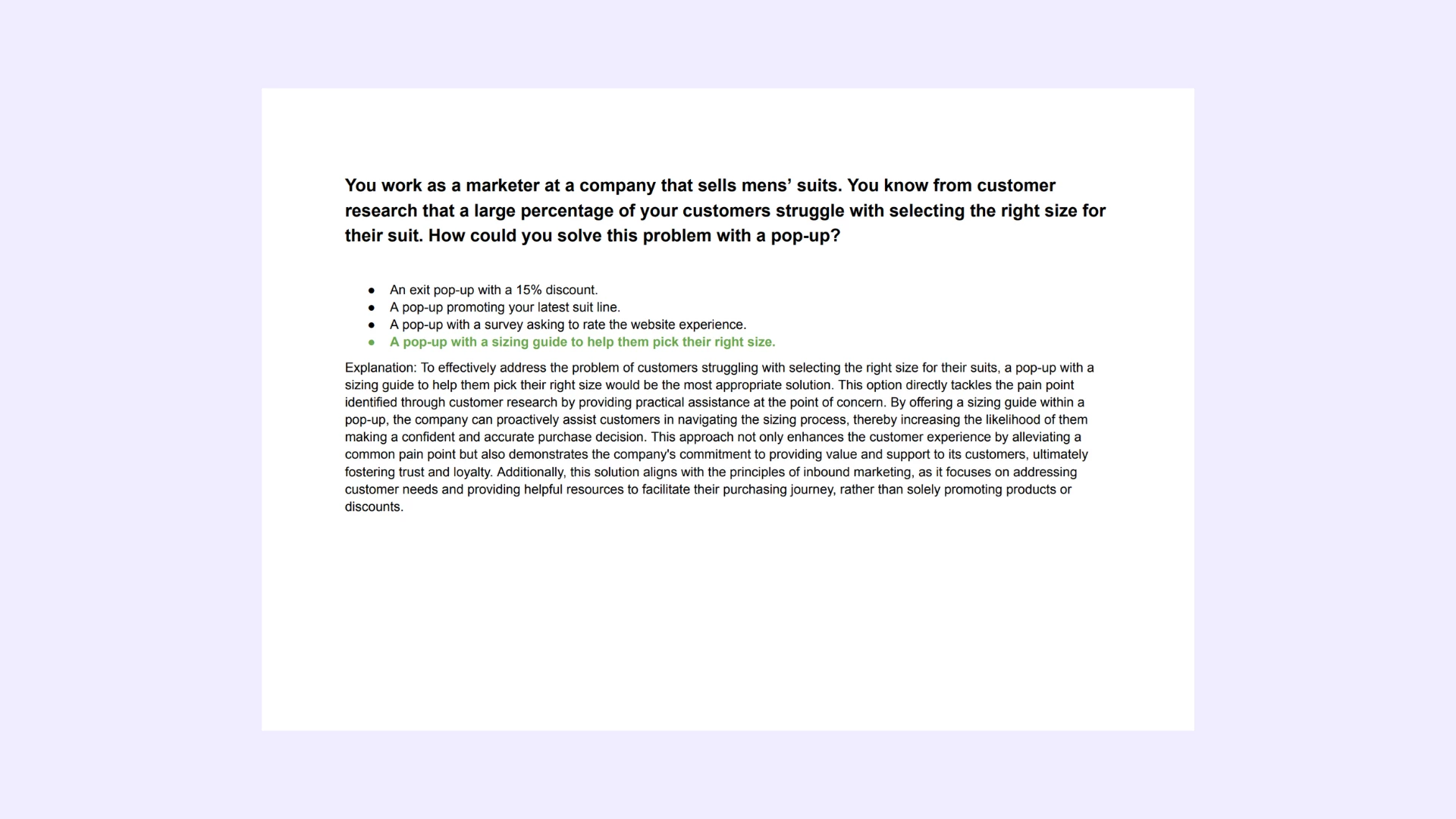Fill in the blank: The difference between digital advertising and organic marketing on social media platforms is that digital advertising is _____ and organic marketing is _____. Select all that apply.
paid; not paid
for ecommerce only; for all businesses
more targeted; less targeted
unhelpful; helpful

HubSpot Roll. Includes Answers for Every Real HubSpot Certification Exam.
All-in-One: Get all HubSpot exams answers with explanations in one bundle. This package includes answers for every current HubSpot certification. Regular updates to reflect the latest exam version. -> See what's included.


Need a single cerification exam answers? Check out our -> list of certification exams answer keys. Learn Smarter. Obtain or Renew your certificates with peace of mind!
Explanation: Fill in the blank: The difference between digital advertising and organic marketing on social media platforms is that digital advertising is _____ and organic marketing is _____. Select all that apply.
Explanation: The correct answers are **paid; not paid** and **more targeted; less targeted**. These options accurately describe the difference between digital advertising and organic marketing on social media platforms. Digital advertising involves paying to promote content or advertisements on social media platforms, allowing businesses to reach a larger audience and target specific demographics, interests, or behaviors with precision. In contrast, organic marketing refers to the unpaid efforts of businesses to create and share content on social media platforms to engage with their audience and build relationships. While digital advertising offers more targeted options due to its ability to leverage advanced targeting features and paid placements, organic marketing relies on reaching audiences through non-paid means, resulting in less precise targeting. Therefore, these options correctly highlight the key distinctions between digital advertising and organic marketing on social media platforms in terms of payment and targeting capabilities.

Special Bundle Offer HubSpot Roll. All in One
Note: We conduct daily checks for updates on the exam, ensuring that the file contains the most recent questions from the actual certification program.
Questions | Answers | Explanations. FREE Updates.
You may also be interested:
- Special HubSpot bundle offer - all HubSpot exams in one
- HubSpot CMS for develpers certification exam answers
- HubSpot CMS for develpers II certification exam answers
- HubSpot content hub for marketers certification exam answers
- HubSpot content marketing certification exam answers
- HubSpot contextual marketing certification exam answers
- HubSpot digital advertising certification exam answers
- HubSpot digital marketing certification exam answers
- HubSpot email marketing certification exam answers
- HubSpot frictionless sales certification exam answers
- HubSpot growth driven design certification exam answers
- HubSpot inbound certification exam answers
- HubSpot inbound marketing certification exam answers
- HubSpot inbound marketing optimization certification exam answers
- HubSpot inbound sales certification exam answers
- HubSpot integrating with HubSpot I foundations certification exam answers
- HubSpot marketing hub software certification exam answers
- HubSpot reporting certification exam answers
- HubSpot revenue operations certification exam answers
- HubSpot sales enablement certification exam answers
- HubSpot sales hub software certification exam answers
- HubSpot sales management certification exam answers
- HubSpot sales software certification exam answers
- HubSpot seo certification exam answers
- HubSpot seo II certification exam answers
- HubSpot service hub software certification exam answers
- HubSpot social media marketing certification exam answers
- HubSpot social media marketing II certification exam answers